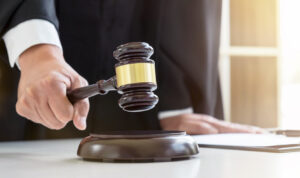
You have probably heard the term liability countless times if you are in the midst of a personal injury case. However, liability in personal injury cases can be a complicated concept.
Anyone who is thinking of pursuing a case must understand the concept of legal liability and how it may apply to their situation. If you still have questions about liability after reading this article, you can contact a personal injury lawyer to explain who may be liable in your case.
What Is Liability?

Liability is a legal term. One person is liable to another person if there is a legally enforceable claim. In a personal injury case, the liable person is the person who was at fault or caused the accident. The person is usually liable under a negligence theory.
Liability can also apply in non-personal injury cases such as contract disputes.
Strict Liability And Vicarious Liability
In addition to liability in a negligence case, there are two additional types of liability: strict liability and vicarious liability.
Strict liability is a type of statutory liability. It means that a defendant could be liable for your damages regardless of whether or not they were negligent or intended to cause the accident. A common example is a dog bite case where the defendant was not aware that their dog was aggressive. In these cases, a dog owner could still be held legally liable, even though no negligence existed.
Vicarious liability is a type of liability where an employer can be held responsible for their employee’s actions. This may apply in personal injury accidents that happen at a business or are caused by an employee while at work.
How Does The Court Determine Liability In A Personal Injury Case?
Most personal injury cases depend upon a negligence theory. The court determines liability by deciding whether the defendant was negligent and, therefore, liable to the plaintiff.
Elements of Negligence
There are four elements in every negligence claim. The plaintiff must prove each element by a preponderance of the evidence. That means that it is more likely than not true.
The elements are:
- Duty of care
- Breach of duty
- Causation
- Damages
Essentially, the plaintiff must show that the defendant owed the plaintiff a duty of care and breached the duty; the breach was unreasonable (in light of the unreasonable person standard; the breach was the direct and proximate cause of the plaintiff’s injuries and losses; and the plaintiff suffered losses as a result of the defendant’s conduct.
Who May Be Held Liable In A Personal Injury Case?
Many different people could be held liable in a personal injury case. There could be a single defendant or multiple defendants who share liability. The appropriate defendants in your case will depend on the type of accident and how it happened.
Some common examples are:
- The government
- A business
- A property owner
- Landlords
- An employer or employee
- A product manufacturer or distributor
- An individual or group of people
Part of a personal injury attorney’s job is to identify every possible defendant. In cases where the damages are high, holding multiple parties accountable can mean you get full payment faster.
What Happens if I Am Partially Liable For My Accident?
Sometimes, a defendant will try to shift blame to a plaintiff in a personal injury case. If the court finds that the plaintiff is partially liable for the accident, that doesn’t mean that the case is over.
Texas applies modified comparative negligence law with a 51% bar. This rule says that a plaintiff can recover damages as long as they are less than 51% at fault for the accident. If the plaintiff is 51% or more liable, they can’t recover any damages.
If the plaintiff is partially liable, then their damages will be reduced. The amount that they are reduced depends on the amount of liability. For example, if the plaintiff is 30% at fault, then they can recover 70% of the damages.
This rule helps plaintiffs who play a small role in an accident, but it also incentivizes defendants to unfairly push blame onto a plaintiff.
What Damages Can I Recover If The Defendant Is Found Liable?
You can recover compensatory damages if the defendant is found liable in your personal injury case. Compensatory damages include economic and non-economic losses. The most common examples are:
- Medical bills
- Property damage
- Lost wages
- Lost future earnings
- In-home nursing care
- Out-of-pocket expenses
- Pain and suffering
- Emotional anguish
- Mental illness caused by the crash
An attorney can help you calculate damages for your claim.
Contact our Dallas Personal Injury Lawyers for a Free Consultation
The best way to identify who is liable in your case is to talk with a Dallas personal injury lawyer at Benton Accident & Injury Lawyers. They can also help you fight for a fair settlement or court award. Schedule a free consultation today at (214) 556-8321.
